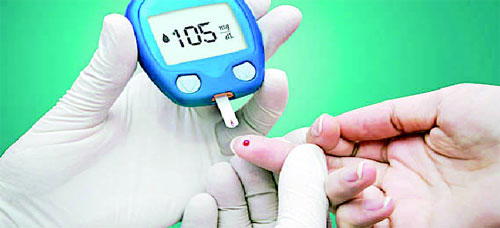
diabetes
Wellness by Tochi Okafor
Over the past few weeks, I’ve delved into understanding diabetes through an enlightening course titled “Diabetes: The Essential Facts,” offered by the University of Copenhagen.
Delivered by esteemed medical doctors and globally recognized health experts, this course provided a wealth of information that I feel compelled to share with a broader community.
This article focuses on Type 2 diabetes, a chronic condition that disrupts the body’s ability to process blood sugar (glucose). Unlike Type 1 diabetes, where the body fails to produce insulin, Type 2 diabetes occurs when the body becomes resistant to insulin or when the pancreas doesn’t produce enough insulin. This condition is heavily influenced by lifestyle factors, particularly diet and physical activity, making it largely preventable.
Key Takeaways:
1. Impact of Obesity: Obesity significantly increases the risk of Type 2 diabetes. Excess body fat, especially around the abdomen, enhances insulin resistance, leading to elevated blood sugar levels. Maintaining a healthy weight is crucial in preventing both obesity and diabetes. The course highlighted that even a modest weight loss of 5-10% of total body weight can improve insulin sensitivity and lower blood sugar levels. This underscores the importance of regular physical activity and a balanced diet rich in whole foods.
2. Rising Incidence Among Youth: Alarmingly, Type 2 diabetes is increasingly diagnosed in children as young as ten years old. This trend underscores the importance of early intervention, particularly during the formative years (ages 1-5). A diet rich in nutrient-dense whole foods—fruits, vegetables, whole grains, and lean proteins—during these years can lay a strong foundation for preventing obesity and Type 2 diabetes. Parents and caregivers play a pivotal role in shaping children’s eating habits and lifestyle choices. Limiting the intake of sugary snacks and beverages and encouraging physical activities can significantly reduce the risk of developing diabetes in later years.
3. Maternal and Paternal Health: The health of both parents plays a significant role in the risk of developing diabetes. Maternal health, particularly glucose levels and weight during pregnancy, can influence a child’s risk of obesity and Type 2 diabetes. Similarly, paternal health, including the genetic and epigenetic quality of sperm, can impact the health outcomes of offspring. The course emphasized the importance of preconception health for both parents. For mothers, managing weight and blood sugar levels before and during pregnancy can reduce the risk of gestational diabetes and, consequently, the risk for their children. For fathers, adopting a healthy lifestyle can improve sperm quality and reduce the risk of metabolic disorders in their offspring.
4. Diet and Physical Activity: One expert emphasized that Type 2 diabetes in adults can often be delayed or even reversed through dietary changes and physical activity. A diet rich in whole foods and low in processed foods can help manage blood sugar levels and improve insulin sensitivity. Regular physical activity enhances the body’s ability to use insulin effectively, reducing the risk of complications associated with diabetes. The expert mentioned that incorporating at least 150 minutes of moderate-intensity exercise per week, such as brisk walking or cycling, can significantly improve insulin sensitivity. Additionally, strength training exercises twice a week can help build muscle mass, which is crucial for glucose metabolism.
Global Trends and Prevention:
Over the past few decades, diabetes has surged globally, particularly in low- and middle-income countries. This shift is attributed to factors like rapid urbanization, decreased physical activity, and the adoption of Western dietary patterns high in sugar, fats, and processed foods. The course provided data showing that urbanization often leads to sedentary lifestyles and increased consumption of fast food, contributing to the rise in obesity and diabetes.
To combat this rise, the World Health Organization (WHO) advocates for proactive measures from global leaders, including the creation of policies that support diabetes prevention. A notable success story is Mexico’s tax on sugary drinks, which significantly reduced the consumption of high-sugar beverages, a major contributor to obesity and diabetes.
WHO Guidelines and Lifestyle Interventions:
The WHO recommends a diet rich in fruits, vegetables, whole grains, and lean proteins, while limiting sugars and saturated fats. Regular physical activity, maintaining a healthy weight, and avoiding tobacco are crucial for preventing and managing diabetes. Additional lifestyle interventions include regular blood sugar monitoring, stress management, and adequate sleep, all supported by healthcare providers, family, and community resources. The course highlighted that stress management techniques, such as mindfulness meditation and yoga, can lower cortisol levels, which in turn helps regulate blood sugar levels.
Conclusion:
Type 2 diabetes is a growing global concern, but it is largely preventable and manageable through lifestyle changes and dietary interventions. By adopting a holistic approach that includes individual, community, and governmental efforts, we can combat the diabetes epidemic and improve public health outcomes. Early childhood nutrition, regular physical activity, and supportive governmental policies can significantly reduce the risk of developing Type 2 diabetes. It is essential for communities to work together, promoting healthy lifestyles and supporting policies that make nutritious food accessible and affordable.
Taking this course has been incredibly informative, and I hope this article has provided you with valuable insights. The role of parents in establishing healthy foundations for their children is particularly crucial. Please share this information widely and share your feedback. Together, we can make a difference in the fight against diabetes.
Until next time.
Disclaimer
Comments expressed here do not reflect the opinions of Vanguard newspapers or any employee thereof.